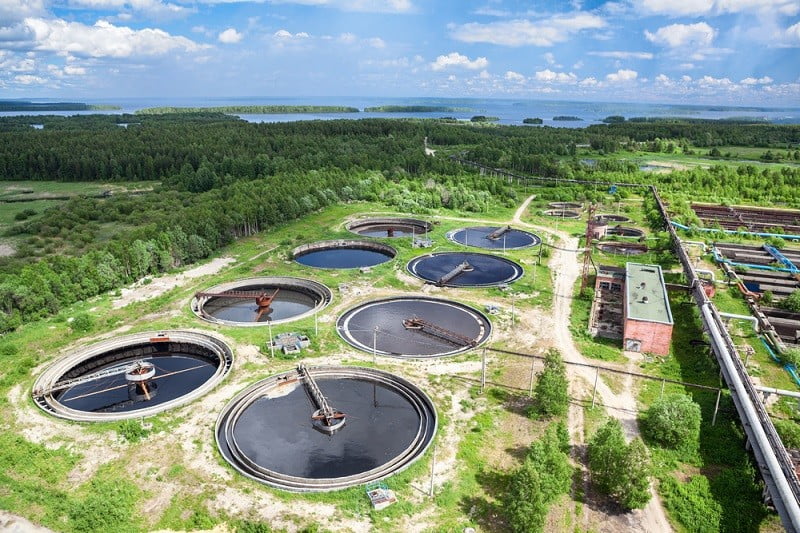Expert Liquid Waste Removal Melbourne: Rapid and Economical Providers
Expert Liquid Waste Removal Melbourne: Rapid and Economical Providers
Blog Article
Recognizing the Comprehensive Refine of Liquid Garbage Disposal: Finest Practices and Environmental Impact Factors To Consider
The monitoring of liquid garbage disposal is a complex issue that requires a comprehensive understanding of different ideal practices and their linked ecological impacts. From the kinds of liquid waste generated to the approaches utilized for collection, treatment, and final disposal, each action plays a critical role in guarding ecosystems and public wellness. As regulative requirements advance and innovation breakthroughs, the conversation around these procedures comes to be significantly essential. What effects do these modifications hold for future sustainability efforts, and just how can stakeholders make certain that they are effectively dealt with?
Kinds Of Fluid Waste
Recognizing the different sorts of liquid waste is necessary for reliable management and disposal methods. Liquid waste can be extensively categorized right into numerous kinds, each calling for special handling and therapy approaches.
Industrial liquid waste typically consists of harmful products, consisting of heavy steels, solvents, and chemicals, generated during manufacturing procedures. These wastes necessitate rigorous governing conformity to shield human health and wellness and the atmosphere. Domestic fluid waste mainly describes wastewater created from households, including sewer and greywater, which, although less poisonous, can still posture considerable risks if improperly handled.
Agricultural liquid waste, including drainage from ranches, typically contains fertilizers and chemicals that can bring about ecological destruction if not dealt with adequately. Clinical fluid waste, created from healthcare facilities, includes polluted liquids such as physical fluids and chemicals, requiring specialized disposal techniques to avoid infection and environmental contamination.
Finally, oil and grease waste, usually created by dining establishments and automotive sectors, can cause severe obstructions in drain systems if not taken care of appropriately. Recognizing these categories helps with targeted techniques for therapy, compliance with policies, and effective disposal approaches, inevitably advertising environmental sustainability and public health safety.

Collection Techniques
Reliable collection methods are essential for the correct management of fluid waste, making certain that it is gathered securely and successfully before treatment or disposal. Numerous techniques are utilized depending on the type of liquid waste generated, the quantity, and the details attributes of the waste.
One common technique is making use of devoted collection storage tanks or sumps, which are developed to capture fluid waste at the source. These systems often include pumps that promote the transfer of waste to bigger storage space containers or treatment centers. Additionally, mobile collection units outfitted with vacuum innovation are employed in scenarios where waste is produced periodically or in hard-to-reach places.
For commercial setups, closed-loop systems can properly minimize spills and leaks, allowing for the recovery and reuse of fluid waste. It is likewise necessary to train workers on correct collection methods to mitigate risks connected with hazardous substances.
Moreover, implementing routine upkeep routines for collection tools guarantees ideal performance and safety. The integration of advanced monitoring systems can boost collection performance by supplying real-time information on waste degrees and potential threats. On the whole, efficient collection approaches are fundamental to sustainable fluid waste monitoring techniques.
Therapy Procedures
Therapy procedures play an essential duty in the management of liquid waste, transforming possibly hazardous products right into safe effluents or recyclable sources - liquid waste disposal. These procedures can be generally categorized right into physical, chemical, and biological approaches, each customized to attend to particular contaminants present in the waste stream
Physical therapy methods, such as sedimentation and filtering, work by removing put on hold solids and particle issue. These strategies are commonly the initial action in the therapy chain, effectively decreasing the tons on subsequent processes. Chemical treatments entail the usage of reagents to counteract dangerous compounds, precipitate hefty steels, or oxidize organic contaminants, thus boosting the security of the effluent.
Organic treatment procedures, consisting of activated sludge systems and anaerobic digestion, take advantage of the all-natural abilities of microbes to break down organic matter. These approaches are particularly effective for wastewater containing eco-friendly contaminants. Advanced therapy technologies, such as membrane filtration and progressed oxidation processes, are increasingly used to attain higher levels of purification.
Incorporating a combination of these treatment techniques not just ensures compliance with governing standards but also advertises environmental sustainability by recouping important sources from fluid waste.
Disposal Options
Exactly how can companies make certain the responsible and safe disposal of liquid waste? Effective disposal alternatives are crucial for securing public health and wellness and the environment. The main methods include land incineration, disposal, and treatment adhered to by discharge right into local wastewater systems.
Land disposal involves the mindful control of liquid waste in marked landfills, making sure that it does not seep into bordering dirt or water. Incineration, on the various other hand, topics fluid waste to heats, converting it into ash and gases, which call for proper filtration to decrease exhausts. This technique is suitable for dangerous wastes that can not be dealt with with typical methods.
In situations where fluid waste can be dealt with, companies may select organic or chemical therapy processes to counteract unsafe elements before discharging the dealt with effluent right into local systems. This course usually straightens with governing demands, guaranteeing that the effluent satisfies safety requirements.
Eventually, companies need to perform detailed assessments of each disposal option to establish its feasibility, taking into consideration elements such as waste structure, regulative compliance, and possible dangers to wellness and the setting. By straight from the source selecting appropriate disposal methods, businesses can add to a responsible waste management approach.
Ecological Impact
The ecological impact of fluid look at here now garbage disposal is an important consideration for companies seeking to decrease their environmental impact. Inappropriate disposal methods can bring about considerable contamination of water sources, dirt destruction, and negative impacts on neighborhood communities. For circumstances, harmful fluids can leach right into groundwater, posturing dangers to alcohol consumption water materials and marine life. In addition, the discharge of without treatment or inadequately dealt with waste into surface area waters can lead to eutrophication, leading to oxygen deficiency and the succeeding fatality of fish and other microorganisms.

To reduce these influences, companies should adopt best methods such as applying strenuous waste treatment processes, promoting recycling and reuse, and adhering to regulative standards. By taking a proactive method to fluid waste management, entities can considerably reduce their environmental impact while sustaining sustainable advancement objectives. Inevitably, a thorough understanding of the environmental effects connected with liquid waste disposal is crucial for informed decision-making and responsible stewardship of natural deposits.
Conclusion
Effective administration of fluid waste is vital for safeguarding ecological honesty and public health and wellness. Ultimately, a comprehensive understanding of liquid waste disposal not just minimizes ecological impacts yet also cultivates a commitment to accountable resource monitoring and ecological stewardship.
The administration of fluid waste disposal is a diverse issue that needs a detailed understanding of various ideal techniques and blog here their associated environmental impacts. From the kinds of liquid waste produced to the approaches used for collection, therapy, and final disposal, each step plays a crucial role in securing ecosystems and public health and wellness.The ecological impact of liquid waste disposal is an essential consideration for organizations seeking to minimize their eco-friendly footprint. Inevitably, an extensive understanding of the ecological effects associated with liquid waste disposal is crucial for informed decision-making and responsible stewardship of all-natural resources.
Eventually, a thorough understanding of fluid waste disposal not only minimizes environmental impacts yet likewise fosters a dedication to responsible resource management and ecological stewardship.
Report this page